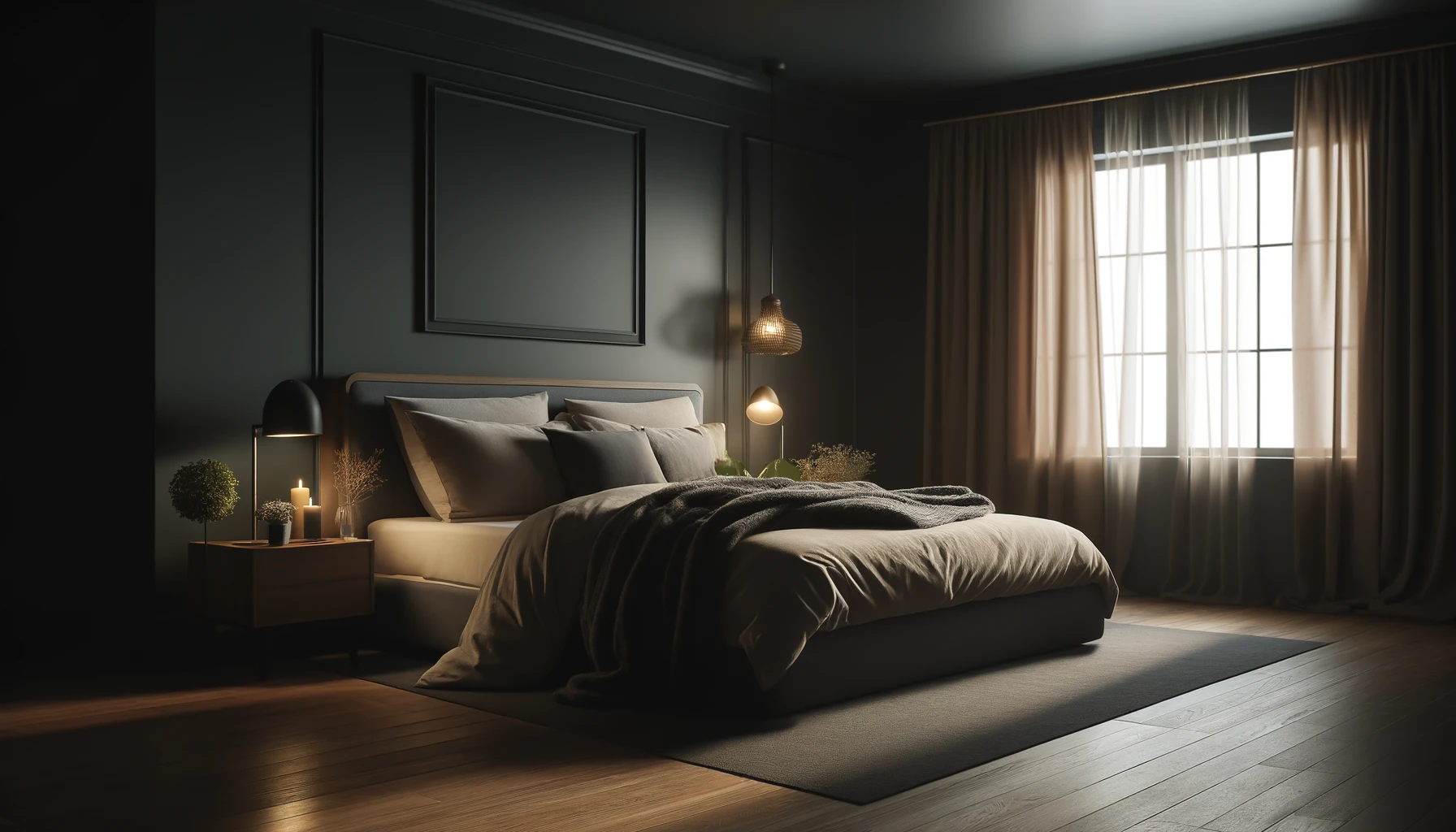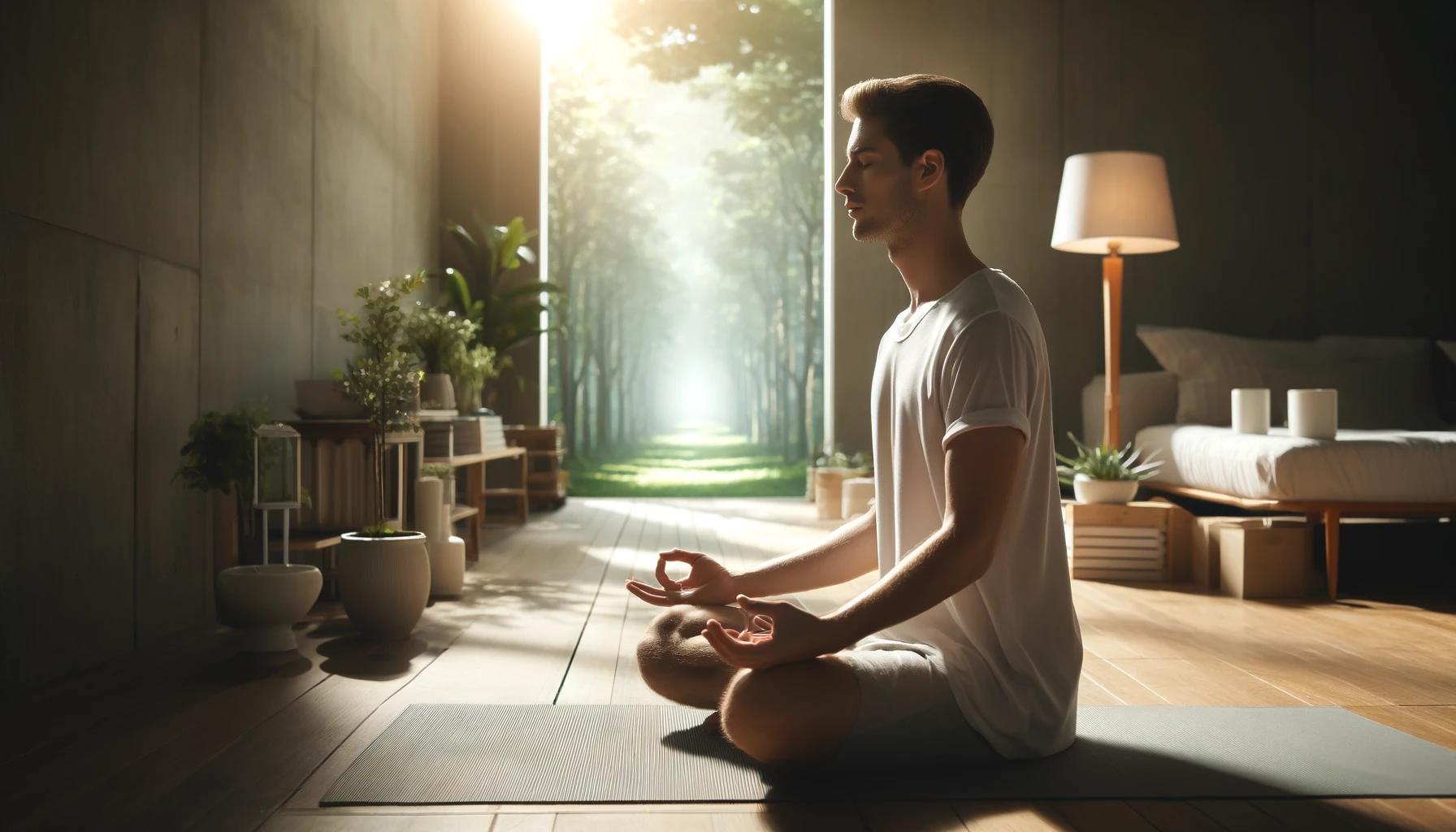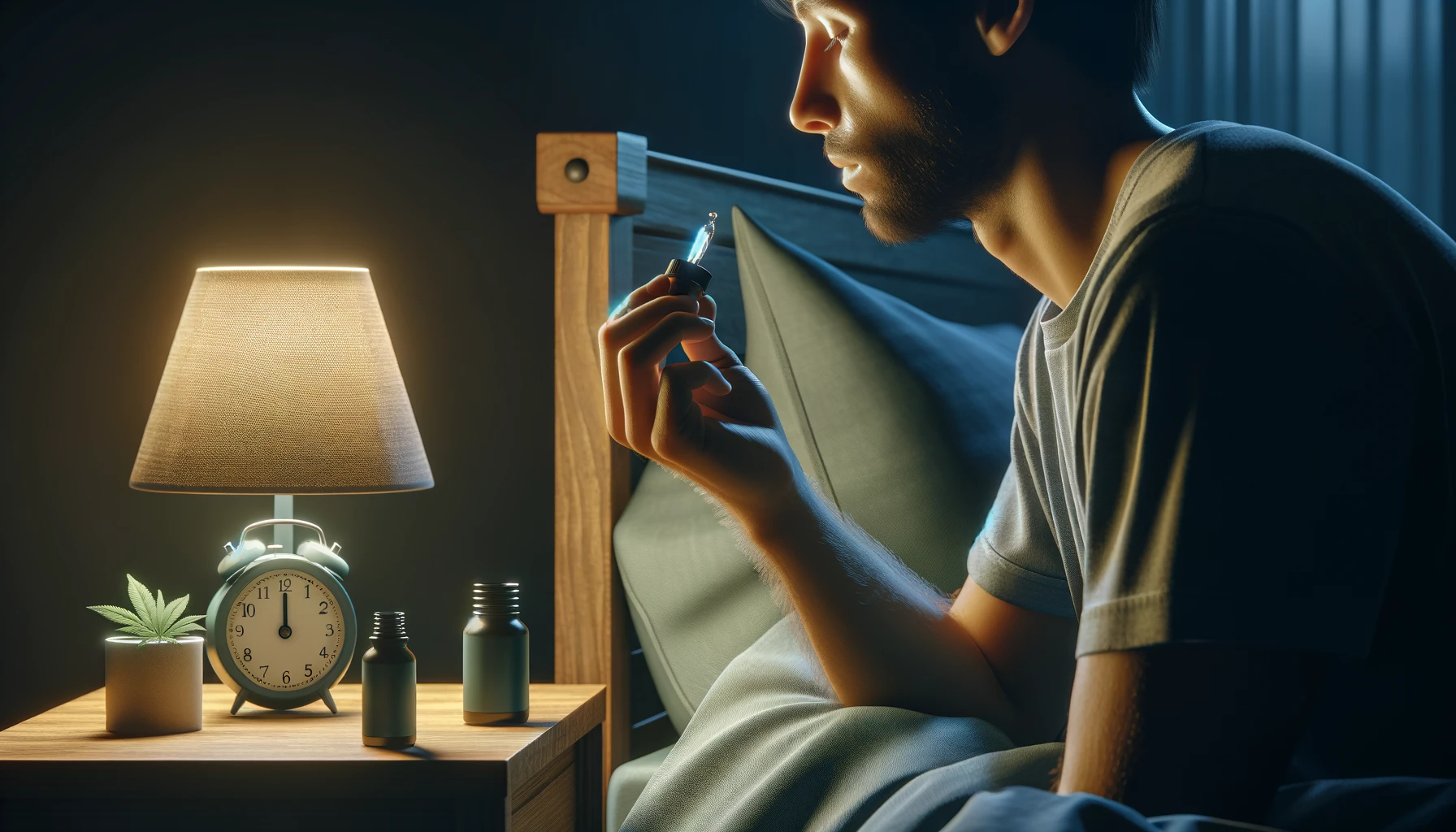Sleeping well is essential for overall health and well-being, but many of us find it difficult to sleep and achieve quality sleep. Insomnia affects millions of people around the world, impairing daily performance and increasing the risk of several health conditions.
Understanding insomnia
Insomnia is a condition characterized by difficulty falling asleep or staying asleep, resulting in non-restorative sleep and tiredness during the day.
There are different types of insomnia:
- Transient insomnia: Lasts from a few days to weeks, often triggered by stressful situations or changes in environment.
- Acute insomnia: Lasts up to a month and can be caused by more prolonged stressful events, such as family or work problems.
- Chronic insomnia: Lasts for more than a month and is usually associated with underlying medical or psychiatric conditions.
The causes of insomnia include
- Stress and anxiety: Worries about work, school, health or family can keep the mind active at nightand cause difficulty sleeping.
- Medical conditions: Chronic illnesses, respiratory problems and neurological diseases can interfere with sleep andcause difficulty sleeping.
- Poor sleeping habits: Going to bed and waking up at irregular times, napping during the day and using electronic devices before bedtime can cause difficulty sleeping.
- Stimulants: Consumption of caffeine, nicotine or alcohol can make it difficult to fall asleep.
Risk factors:
- Older age: Changes in sleep patterns and health can contribute to difficulty sleeping.
- Women: Hormonal changes during the menstrual cycle, pregnancy and menopause can contribute to difficulty sleeping.
- Mental illness: Depression, anxiety and other mental conditions can increase difficulty sleeping.
The importance of quality sleep
Quality sleep is essential for physical, mental and emotional health. During sleep, the body performs several vital functions, such as cell repair, strengthening the immune system and consolidating memory. Sleeping well also improves mood, increases the ability to concentrate and reduces the risk of chronic diseases such as diabetes and heart disease.
Lack of sleep, on the other hand, can lead to a range of health problems, including increased stress, decreased cognitive function and a compromised immune system. The difficulty sleeping can contribute significantly to these issues.
Therefore, finding ways to improve sleep naturally is essential to maintaining a healthy and balanced lifestyle.
Methods to improve sleep naturally
There are a number of natural approaches that can help improve sleep naturally and reduce difficulty sleeping, including regular exercise, dietary adjustments and other lifestyle changes.

The role of physical exercise
Regular physical exercise is one of the most effective ways to improve sleep naturally. Physical activity helps regulate the circadian rhythm, reduces anxiety and depression, and promotes physical fatigue, making it easier to fall asleep.
Types of exercise such as walking, running, swimming and yoga are particularly beneficial for those who have trouble sleeping.
Suggested exercise routines to improve sleep naturally
Following an exercise routine can naturally improve sleep and reduce difficulty falling asleep. Here are some suggestions:
- Active mornings: Start the day with a brisk walk or a morning yoga session to wake up body and mind.
- Afternoon sessions: A light jog or pilates class in the afternoon can help maintain energy levels without interfering with sleep.
- Evening relaxation: Relaxation practices and gentle stretching before bed can prepare the body and mind for a peaceful night’s sleep.

Dietary adjustments for better sleep
Diet plays a crucial role in sleep quality. Certain foods can promote better sleep and reduce difficulty sleeping, while others can interfere.
- Foods rich in tryptophan: Turkey, eggs, cheese, nuts and seeds help increase the production of melatonin, the sleep hormone.
- Complex carbohydrates: Oats, quinoa and brown rice can facilitate the production of serotonin, promoting relaxation.
- Hot drinks: Chamomile, lemon balm and valerian teas have calming properties and can help induce sleep.
- Magnesium-rich foods: Green leafy vegetables, nuts and seeds can help relax the muscles and calm the nervous system.
- Drinks: Drinks such as warm milk contain tryptophan and can be comforting.
Avoid:
- Caffeine: Coffee, black tea, soft drinks and chocolate should be avoided at least six hours before bedtime.
- Refined sugar: Can cause energy spikes and make it difficult to sleep.
- Alcohol: Although it can induce sleep initially, it can interrupt sleep cycles later in the night.
- Energy drinks: High levels of caffeine can interfere with sleep.
- Heavy meals: Eating large quantities of fatty or spicy food can cause discomfort and indigestion at night.

Create a healthy sleeping environment
The environment in which we sleep has a profound influence on the quality of our sleep and the ease with which we fall asleep. To promote restful sleep, it is essential to create a space that is conducive to rest. Here are some practical tips for transforming your bedroom into a sanctuary of tranquillity:
- Darkness: The presence of light, even in small amounts, can interfere with our circadian rhythm, making it difficult to fall asleep and stay asleep. To minimize this interference, use blackout curtains, which are effective at completely blocking out external light, providing a darker environment and therefore more conducive to deep sleep.
- Silence: Silence is another crucial component for good sleep. Disturbing noises, such as traffic or noisy neighbors, can interrupt sleep or make it difficult to fall asleep. To combat this, consider using earplugs or white noise machines. The latter emit soft, constant sounds that mask unwanted noises and create a calmer atmosphere conducive to sleep.
- Temperature: The temperature of the room also plays a vital role in the quality of sleep. An environment that is too hot or too cold can cause discomfort and interruptions in sleep. The ideal temperature for sleeping is between 18 and 20°C. Keep the room cool by using fans, air conditioning or adjusting the heating as necessary to achieve this temperature range.
- Comfort: Last but not least, physical comfort is essential. Investing in a good mattress and comfortable pillows can make a big difference to the quality of your sleep. A mattress that offers the right support for your posture and pillows that keep your head and neck well aligned help to avoid pain and discomfort that can disturb your rest.
By following these guidelines, you can create a sleep environment that favors deep, restorative rest, contributing significantly to your overall health and well-being.

The importance of meditation and relaxation techniques
Practices such as meditation, deep breathing and progressive muscle relaxation can help calm the mind and prepare the body for sleep. Dedicating a few minutes before bedtime to these practices can reduce stress and anxiety, promoting a more restful sleep.
- Meditation: Focusing on breathing or mantras can reduce mental activity.
- Deep breathing: Techniques such as diaphragmatic breathing can lower the heart rate and relax the body.
- Progressive muscle relaxation: Alternating between tensing and relaxing muscle groups can relieve physical tension.

Supplements that can help with sleeping difficulties
Various natural supplements can help improve sleep and reduce difficulty falling asleep:
- Melatonin: Melatonin supplements can be useful for regulating the sleep cycle, especially for those who suffer from jet lag or work shifts.
- Magnesium: Can help relax muscles and improve sleep quality.
- Valerian: Known for its calming properties, it can help reduce anxiety and promote sleep.
- Lavender: Lavender is known for its calming and relaxing properties. It can be used in the form of essential oil, tea or supplements to help induce sleep and improve its quality.
- CBD Hemp Oil: CBD hemp oil has relaxing and anxiolytic properties that can help promote deeper, more restorative sleep. In addition, it can be effective in reducing pain and discomfort that interfere with sleep quality.
How they work together
Combining hemp oil, valerian and lavender can offer a synergistic effect to improve sleep:
- Reducing anxiety: Both hemp oil and lavender have anxiolytic properties, helping to reduce anxiety that can interfere with sleep.
- Relaxation and sedation: Valerian and lavender promote relaxation and have mild sedative effects, making it easier to fall asleep.
- Sleep quality: All three supplements can contribute to deeper, more restorative sleep, each acting on different aspects of the sleep cycle.

More about CBD oil
CBD oil (cannabidiol) is a compound derived from the cannabis plant that has gained popularity due to its potential health benefits, including improving sleep naturally and reducing difficulty sleeping.
Studies suggest that CBD can help reduce anxiety and pain, both of which can interfere with sleep. In addition, CBD can influence the sleep cycle, promoting deeper and more restful sleep.
Incorporate CBD oil into your routine
CBD oil properties and sleep
CBD oil interacts with the body’s endocannabinoid system, which plays a role in regulating sleep, mood and pain. By influencing this system, CBD can help promote more regular and better quality sleep.
In addition, CBD has no psychoactive effects, which makes it a safe option for many people.
Practical tips for using CBD oil
If you’re considering using CBD oil to improve your sleep naturally, here are some practical tips:
- Start with a low dose: As the response to CBD can vary from person to person, it is advisable to start with a low dose and gradually increase it until you find the amount that works best for you.
- Choose a quality product: Make sure you buy CBD oil from reputable manufacturers who supply products that have been tested by independent laboratories.
- Consistency is key: Use CBD oil consistently, usually about 30 minutes to an hour before bedtime.
Sleep well and live better!
Improving sleep naturally is possible with the right strategies. Incorporating regular exercise, making dietary adjustments, using natural supplements such as CBD oil can make a big difference for those who have trouble sleeping. These natural approaches not only improve sleep quality, but also contribute to a healthier and more balanced lifestyle.
If you’re ready to start your journey to a more restful and revitalizing sleep, Cannbliss has recently launched Hemp Oil Night Drops 2000mg with Lavender and Valerian, ideal for promoting better sleep.











